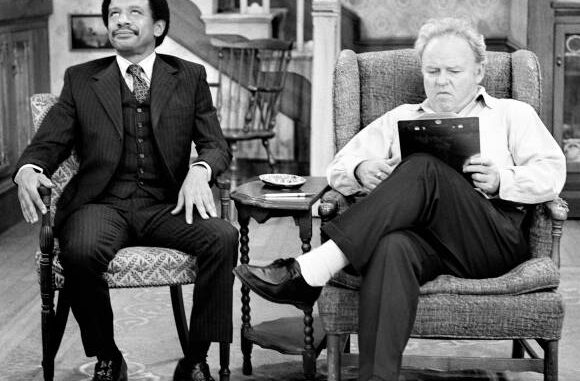
When All in the Family premiered in 1971, it burst onto the television scene like a breath of fresh air—or perhaps a jarring wake-up call. Created by Norman Lear, the show tackled complex social issues with a boldness that had rarely been seen on American television. Its impact was profound, reshaping the sitcom landscape and challenging viewers to confront uncomfortable truths. Let’s explore why All in the Family was a radical move for early 1970s television.
1. Tackling Social Issues Head-On
Addressing Taboo Topics
Prior to All in the Family, sitcoms often shied away from controversial subjects like race, gender roles, and politics. However, this groundbreaking series tackled these issues directly, using humor to discuss topics that many found uncomfortable. From racism to women’s rights, the show opened the door for honest dialogue about pressing societal matters.
The Character of Archie Bunker
Archie Bunker, portrayed by Carroll O’Connor, epitomized the prejudiced yet relatable American everyman. His outrageous opinions and bigotry provided a platform for the show to confront social issues while still delivering laughs. By showcasing Archie’s outdated views, the show encouraged audiences to reflect on their own beliefs and prejudices.
2. Subverting Sitcom Norms
Flawed Characters
Unlike the idealized families that populated earlier sitcoms, All in the Family presented a cast of flawed characters. Archie and his family were complex, often navigating conflicts that were rooted in their imperfections. This shift towards more realistic portrayals of family dynamics allowed for richer storytelling and character development.
Realistic Family Dynamics
The Bunker household was not without its problems. Conflicts between Archie and his son-in-law, Mike (Rob Reiner), highlighted generational and ideological divides. These authentic family dynamics resonated with viewers, reflecting the complexities of real-life relationships and setting a new standard for sitcoms.
3. Pioneering a New Format
Single-Camera Style
All in the Family was one of the first sitcoms to employ a single-camera format, allowing for a more intimate and realistic portrayal of its characters. This style added depth to the storytelling, enabling the audience to connect with the characters on a more personal level.
Laugh Track Evolution
While many sitcoms of the time relied heavily on laugh tracks, All in the Family used them sparingly. This choice enhanced the show’s dramatic moments, allowing the humor to feel more organic and less forced. It changed the way audiences experienced sitcoms, making the laughter feel more authentic.
4. Impact on Television and Society
Cultural Commentary
The show became a cultural touchstone, using its platform to address important social issues. Through satire and humor, it examined the changing American landscape, making it clear that television could be a medium for serious commentary.
Influencing Future Shows
The success of All in the Family opened the floodgates for other shows to explore similar themes. Series like Maude, The Jeffersons, and Good Times followed in its footsteps, tackling issues like feminism, class struggles, and racial inequality. This shift marked a significant change in the kinds of narratives that could be explored on television.
5. Legacy and Recognition
Critical Acclaim
All in the Family received widespread acclaim during its run, winning numerous awards, including multiple Emmy Awards. It was praised for its writing, performances, and its ability to blend comedy with serious themes, solidifying its place in television history.
Enduring Relevance
Even decades later, the themes explored in All in the Family remain relevant. The show’s willingness to confront societal issues head-on continues to inspire contemporary television, proving that the radical move made in the early 1970s still resonates today.
Conclusion
All in the Family was a radical move for early 1970s television, challenging conventions and addressing complex social issues with humor and honesty. Its legacy is profound, influencing not just sitcoms but the entire landscape of television storytelling. By tackling difficult topics and presenting flawed characters, the show opened the door for future generations of storytellers to explore the realities of American life.
FAQs
1. What social issues did All in the Family address?
The show tackled issues like racism, sexism, and generational conflicts, making it a platform for important societal discussions.
2. How did Archie Bunker’s character contribute to the show’s impact?
Archie’s flawed and often prejudiced views prompted viewers to reflect on their own beliefs, making the show a catalyst for social change.
3. What was unique about the show’s format?
All in the Family utilized a single-camera style and minimized the use of laugh tracks, creating a more intimate and authentic viewing experience.
4. How did All in the Family influence future sitcoms?
The show opened the door for other sitcoms to address serious themes, leading to the creation of series that explored similar social issues.
5. Why does All in the Family remain relevant today?
The themes and issues tackled in the show continue to resonate, reflecting ongoing societal challenges and inspiring modern television narratives.
